Speechless Blog 3: The end of the workshop period
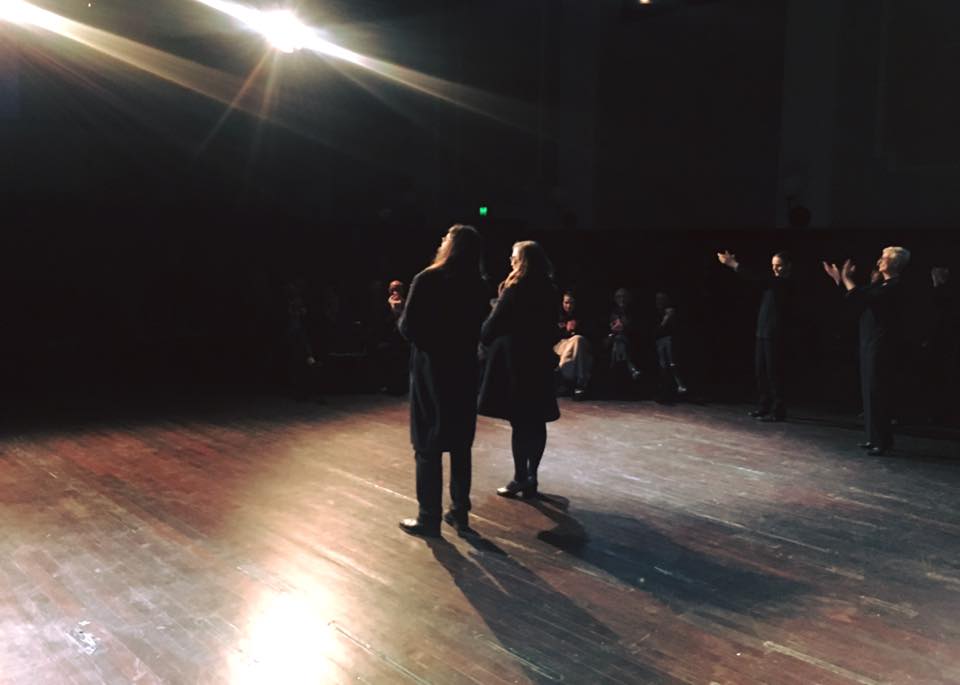
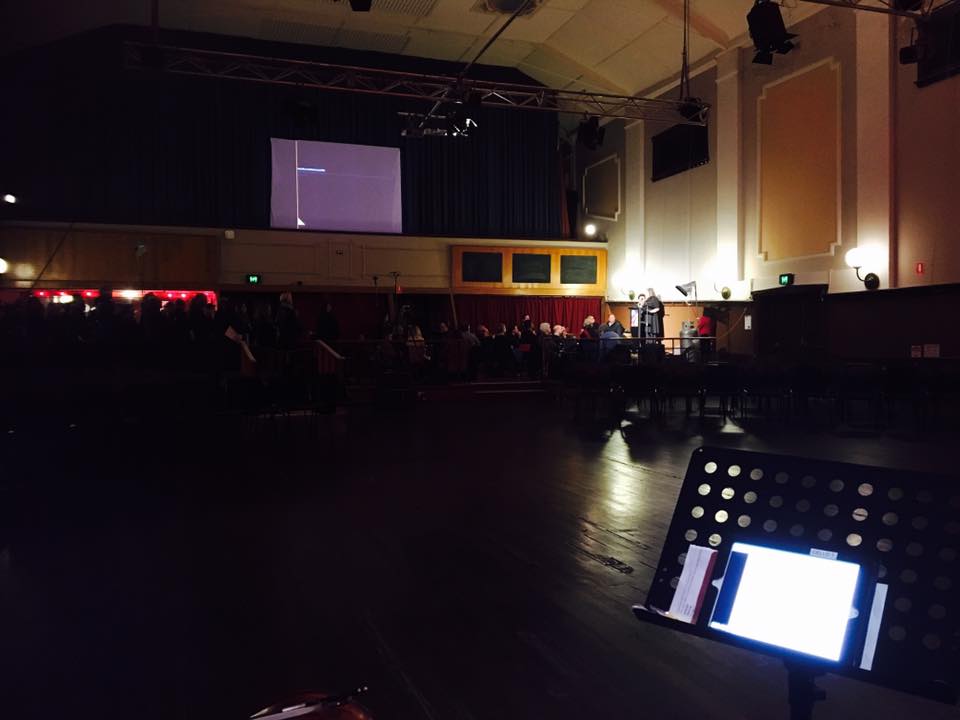
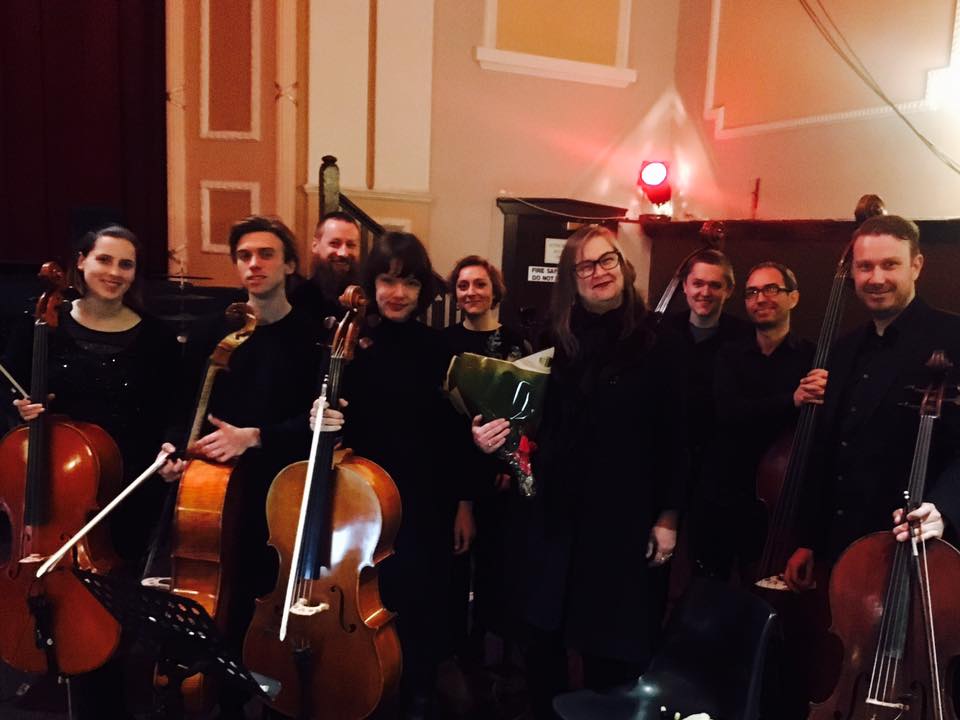
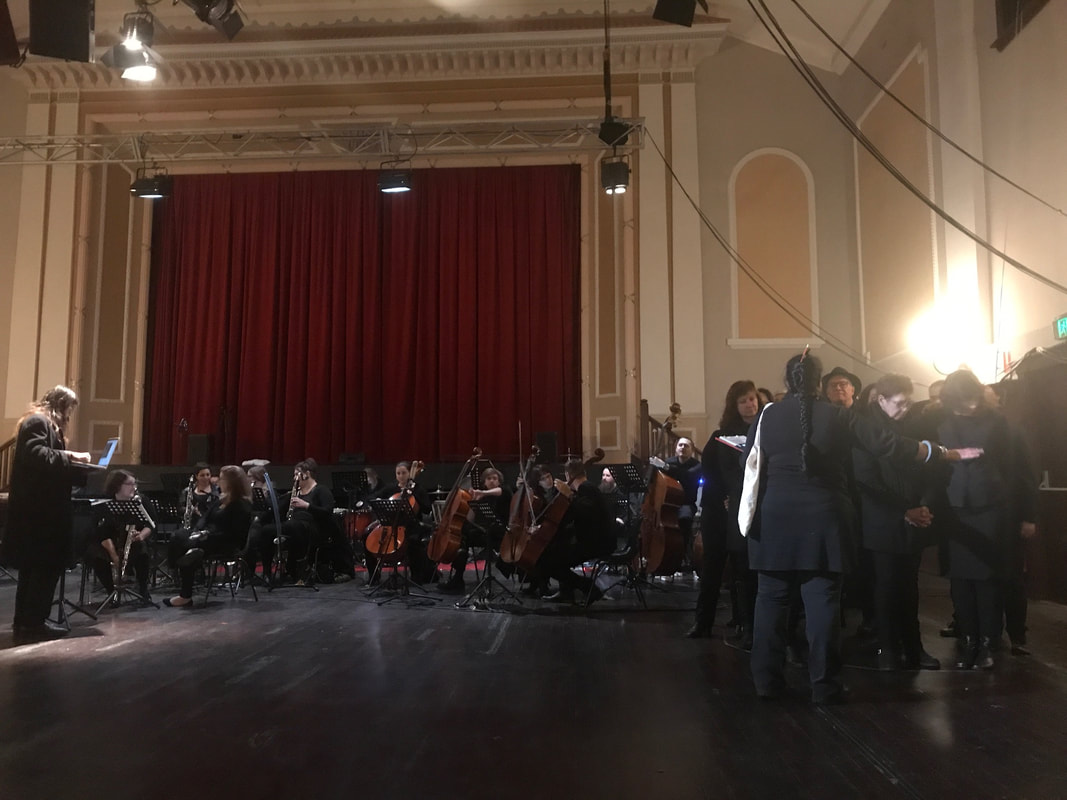
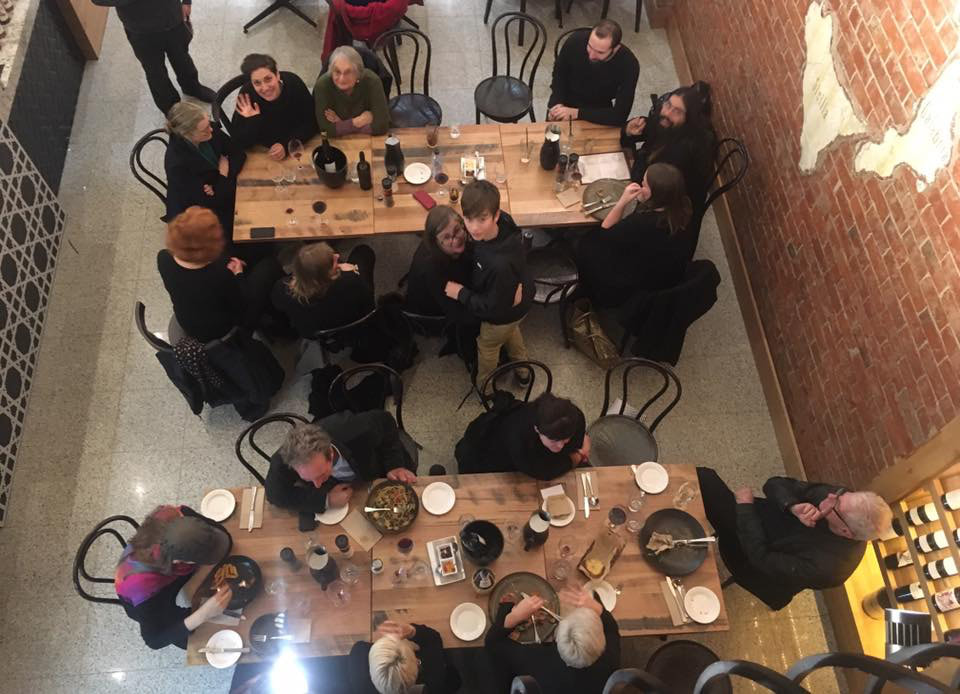
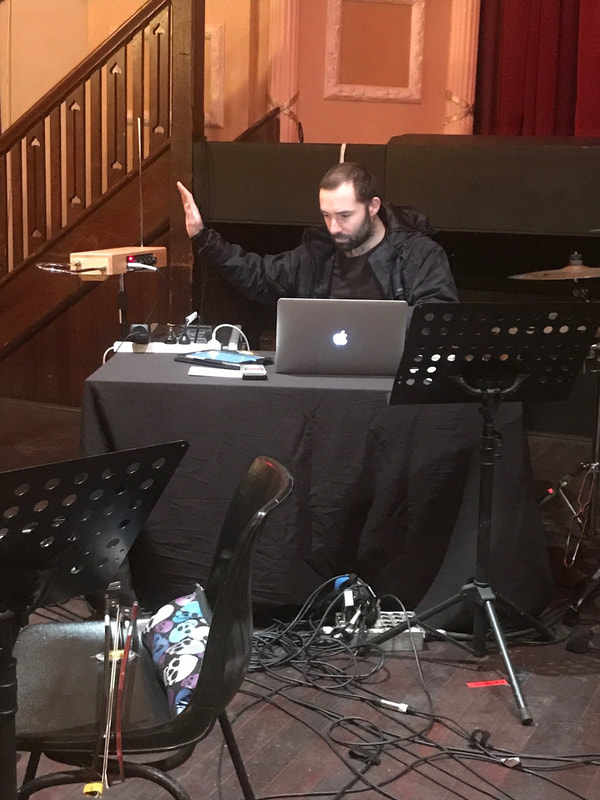
I am writing this the day after the last of two performances that showed the work done on the opera in the last 10 or so days. Its fair to say I am exhausted, but ecstatic. You can read the program created for the performances here. The workshop period has been such a positive experience. I had such a great team of collaborators around me - the producers (Tura), the hosts (Vitalstatistix), the legendary Guy Smith as our audio engineer, expert runner of the tight ship Sue Studham as our stage manager, supported by my own daughter Jazmine as her (and my) assistant, four incredibly talented and open minded soloists, and the Australian Bass Orchestra led by some of my most trusted and expert collaborators.
The community choirs that took part, Hoi Polloi and Born on a Monday, really rose to the occasion: the second of the two showings/performances went to a new level and really gave me faith that this idea of using community choirs rather than formal choirs was - and still is - a good one. From the conversations I had with members of the choirs, they had an overwhelmingly positive experience and are eager to do more. We had four orchestral calls, two of which were the showings. A dress rehearsal and one other 'run'. By the second performance, the orchestra took ownership of the work and it really came together. Our music director and programmer finished the Illustrator scripts that meant making parts whenever there was a change made a task of about 2 hours into just 5 minutes.
The copyist/typesetter Dan and I found a way to do edits on the fly during rehearsals, so the late nights of editing could cease. We pushed the vector based program Illustrator hard, and learnt about the issues of editing these files as music documents. The musicians from Adelaide, bought together with assistance from Gabriella Smart and Hilary Klenig (both amazing musicians that I have written commissions for before, and part of this orchestra) shone. Deborah May interviewed participants in the project, all soon to be released on a blog page on Tura's web site. She took extensive footage of the process and the final works. Sally Richardson provided invaluable support around the final staging of the showings - a delicate affair where i wanted to divide up the acts clearly, turn the focus on the music, but also get everyone looking good, and re-iterating it as an opera all whilst making it clear it had not yet been staged. I had incredible conversations with participants and audience members, and Vincent Plush at Limelight wrote an article about the showings, that you can read here. I am thrilled to say that overall he really understood it, appreciated the intention, and the influences on my style.
Of course, there are still some things i want to change. Listening to the work twice without a score really gave me some perspective around structure and flow, and means I can now use the recordings we made of the runs as tools to improve these elements.
This has been a very emotional time. The opera itself is very personal, so there is that - its like getting too close to a part of yourself but not sure you understand it, or can change it. Then, the overwhelmingly positive response - during the development, and the performances. Not just of the work, but for me as a composer, and my process. Somehow I had always felt that my work was never as good as everyone elses. This project and the wonderful support I have enjoyed now make me feel more confident and my practice feels like it has consolidated. I am very, very lucky to have had this opportunity. Most don't. I guess thats what the opera is about - a rather sad paradox in itself.
What is in Opera? I really do believe this work is one, and it is important that it is. Tonight I found a great article about a terrible opera (!) here, it has some great things to say about what contemporary opera is, and can be. I didn't need to justify it as an opera much as I expected. People are ready for something different, that reflects the complex contemporary world of musical style, of the inherent drama in the important issues of our time. People expressed how moved they were, especially those who had worked with people who they felt were 'speechless' - some refugee advocates approached me with some very meaningful comments, once said she had cried throughout. With this work, I feel I have finally come over and out of the 'experimental music ghetto' and into music that does speak to people more directly, something, until now, I have only dreamt about. I doubt this work is for everyone, but it seems like it is for those who matter. Thank you to all of you.
